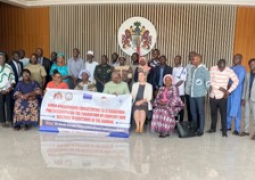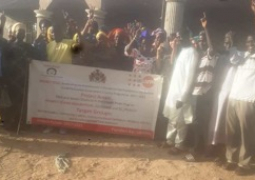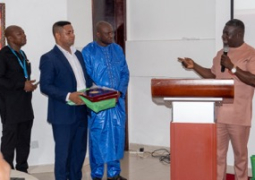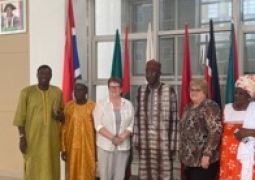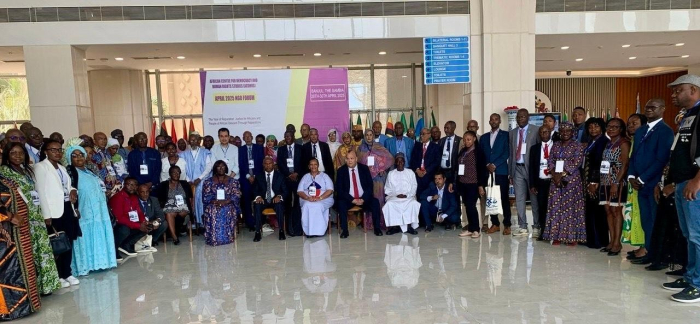
The two-day session held at the Sir Dawda Kairaba Jawara International Conference Centre, was being held under the theme: ‘Justice for Africans and People of African Descent Through Reparations.’
The event attracted human rights defenders, civil society organizations, policymakers and key stakeholders from across Africa and the Diaspora to engage in meaningful dialogue and formulate concrete strategies on reparative justice.
At the opening ceremony, Husain Thomas, Solicitor General and Legal Secretary at the Ministry of Justice of The Gambia, highlighted the Victims Reparations Act of 2023, designed to compensate victims of human rights violations.
“One matter that has been of high priority to this government has been the issue of reparations for victims,” Thomas said, underscoring the legislation’s role in addressing past abuses.
The dialogue also spotlighted modern forms of exploitation, including child labor and forced labor, which persist despite the abolition of slavery in African nations. These practices, described as contemporary slavery, underscore the urgency of equitable reparations and systemic reforms to ensure fair treatment and compensation for affected communities.
Hannah Forster, Executive Director of the African Centre for Democracy and Human Rights Studies (ACDHRS), revealed that the call for reparations is not merely about addressing historical wrongs, rather it is about challenging and transforming the present structures that perpetuate inequality, poverty and systematic exploitation.
“It is also worthy to note that reparations are an act of justice, a path towards healing and a demand for dignity, not only for our ancestors, but also for the current and future generations. So, it's a lot of work that we are embarking on and it is important that we are able to agree on what is it, what dimensions do we want to discuss and also to agree on how we engage.”
Also speaking, Hon. Rémy Ngoy Lumbu, chairperson of the African Commission on Human and Peoples' Rights emphasized the importance of the ideas to be generated from the session.
“It is not the quantity, it is not the number of participants, it is the ideas that will come out of this room,” he said.
He underscored the centrality of victims’ rights in the reparations discourse, affirming the complexity of addressing deep-seated wounds.
“Can the wounds with the reparations be cauterized? Can they be healed? The most serious wounds are not the physical wounds on the body; they are the internal wounds,” he said, referencing the profound pain of losing loved ones.
As the dialogue unfolds, its outcomes are expected to influence the deliberations of the African Commission’s 83rd session, providing a foundation for continental policies on reparations.


